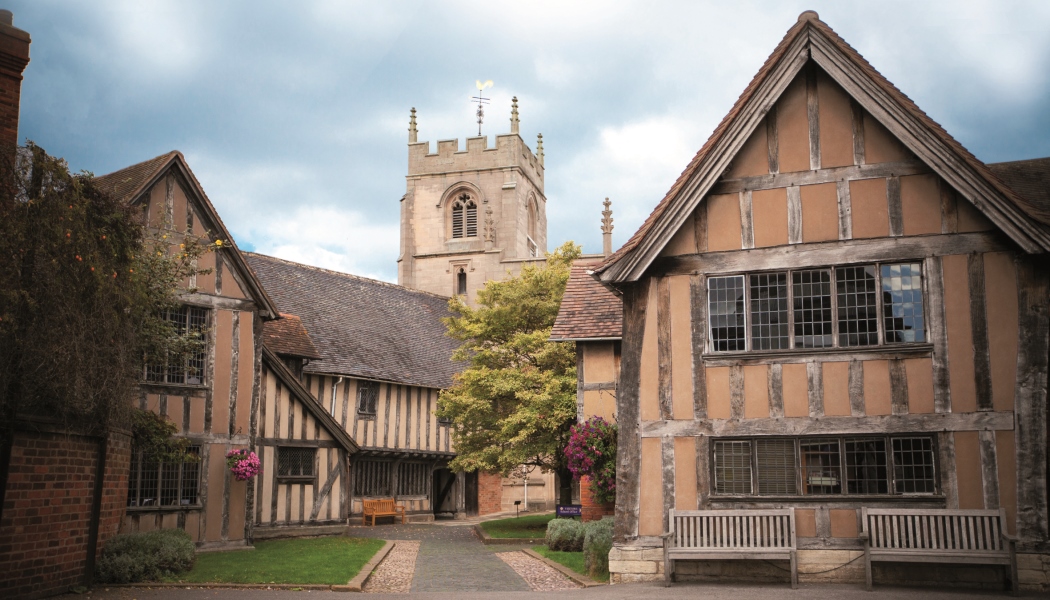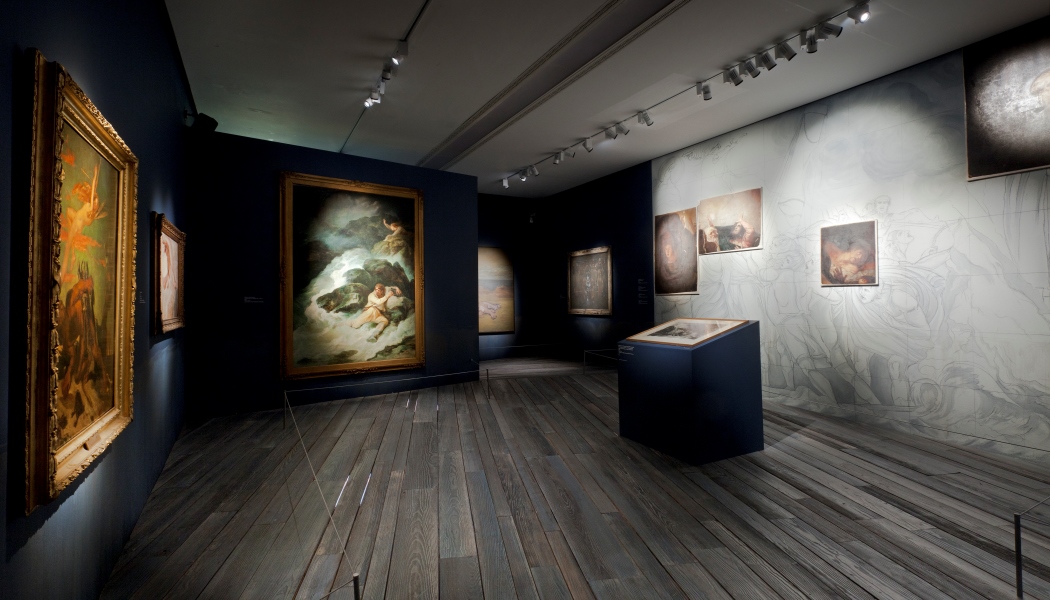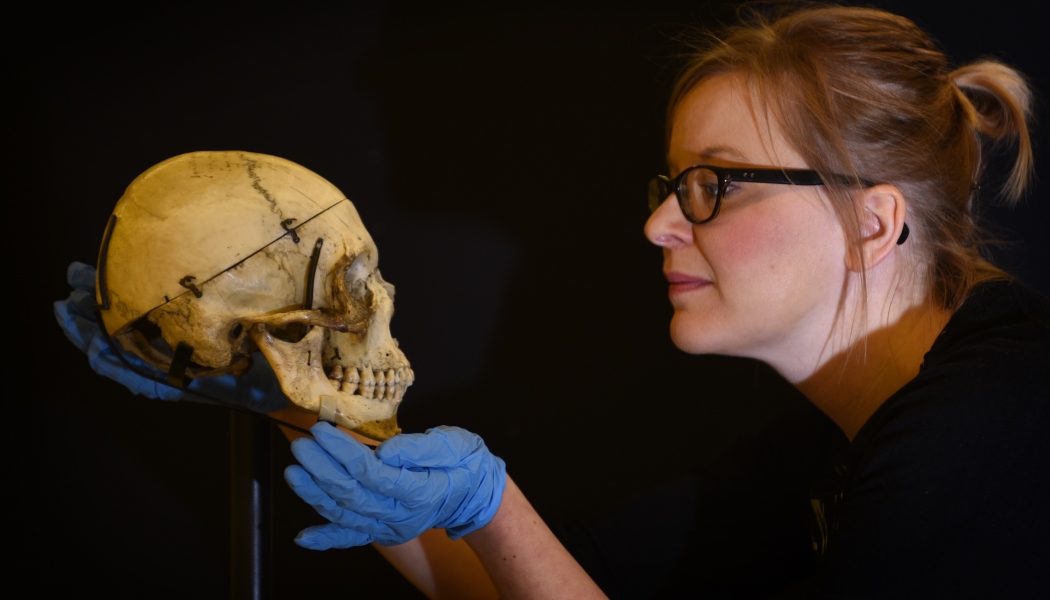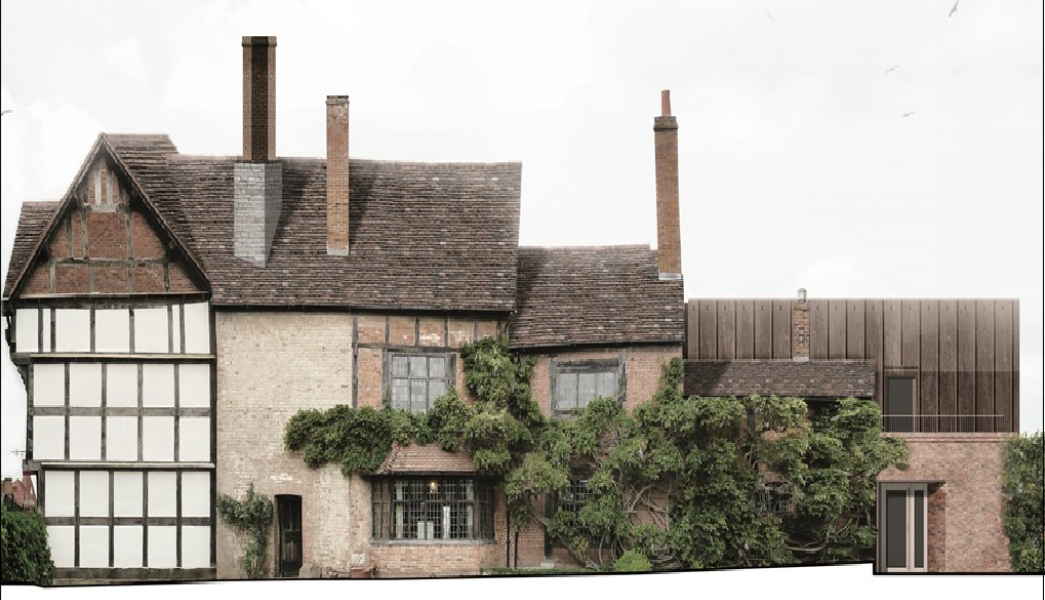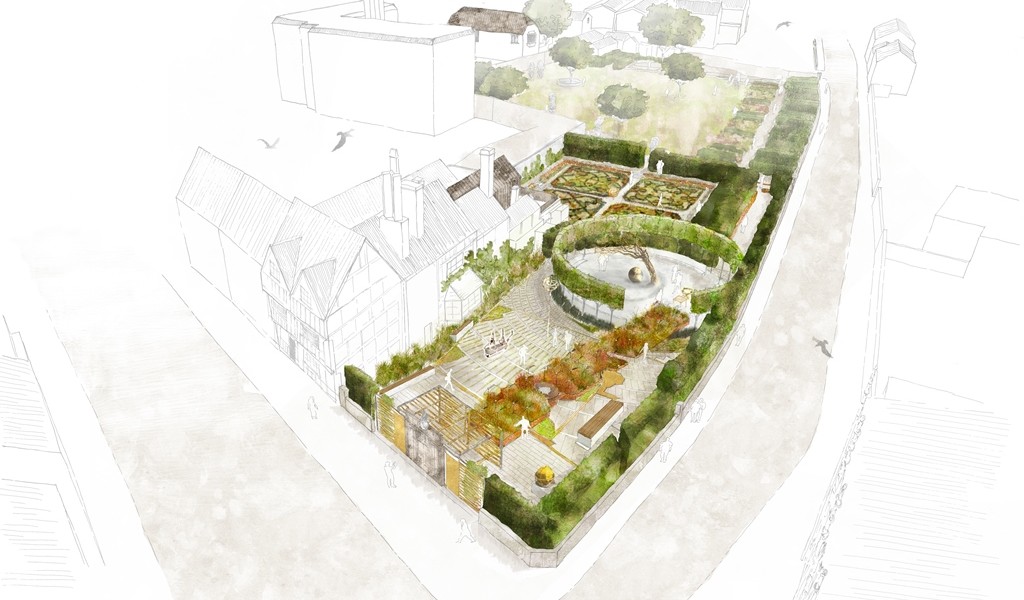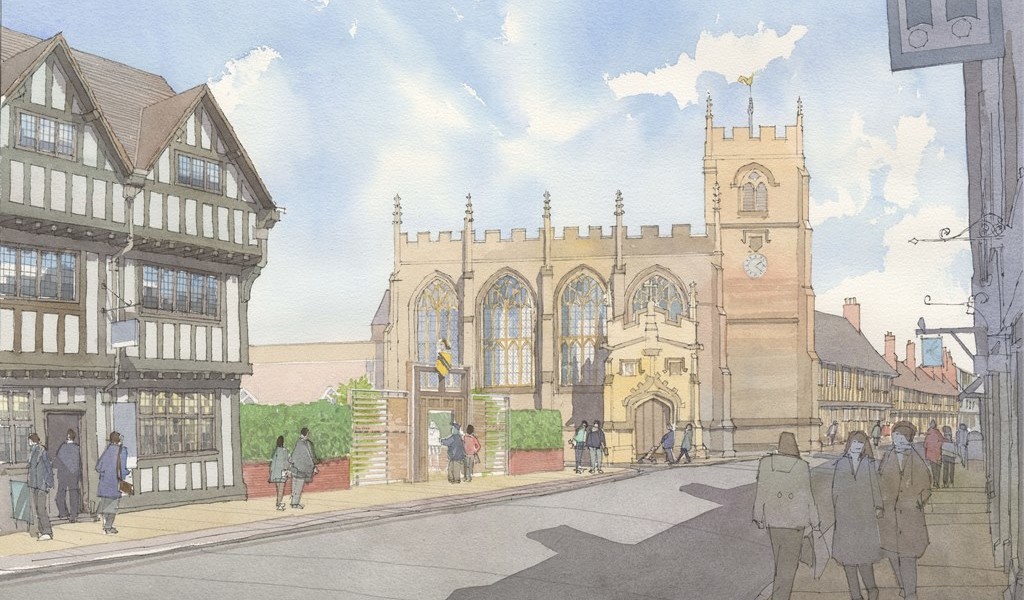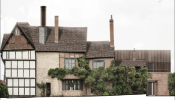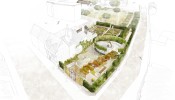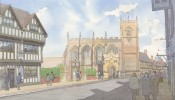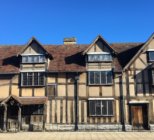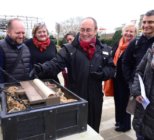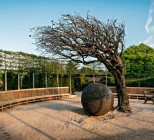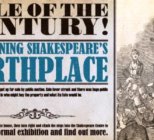Here we talk to Diana Owen, CEO and director of Shakespeare Birthplace Trust, about the weekend’s celebrations and a new museum and garden that will open at New Place, Shakespeare’s home in Stratford-upon-Avon and the place where he died, that opens on 1 July.
We also present three features including the opening of Shakespeare’s Schoolroom as a visitor attraction, Compton Verney Art Gallery in Warwickshire’s current exhibition Shakespeare in Art: Tempests, Tyrants and Tragedy and the British Library’s new exhibition, Shakespeare in Ten Acts.
Every year the Shakespeare Birthplace Trust celebrates 23 April as Shakespeare’s birthday but this year is extra special because they are marking the 400th anniversary of Shakespeare’s death in 1616 and his legacy.
“People cannot fail to have noticed on TV, radio and publications the 400th celebrations. Our day starts very early on Saturday with a live broadcast at 8am for Breakfast with the Bard on the BBC from New Place,” says Owen, which is part of part of the BBC’s special online celebration Shakespeare Lives in collaboration with the British Council.
Following this Shakespeare Birthplace Trust will take part as lead organisers of the traditional annual parade from Shakespeare’s Birthplace to Holy Trinity Church where he is buried. There will be ambassadors, high commissioners, community and arts groups, dance ensembles and hundreds of schoolchildren with special delegations from a number of countries including Russia, China, Thailand and Spain.
“It will be a very colourful parade with singing, dancing and music,” says Owen. “The rest of the day along with the RSC we will be hosting free entertainment such as a fun circus, acrobatics, skills, and performances of Shakespeare’s works.”
The School of Liberal Arts from Tulane University in Louisiana will perform a New Orleans Jazz Funeral for William Shakespeare, complete with music provided by The Wendell Brunious Band. They will join the annual procession of dignitaries, VIPs, school students, and marching bands in Shakespeare’s Birthday Parade to his grave at Holy Trinity Church. As part of the parade there will be performances from the Kentucky Shakespeare Festival and its New Orleans counterpart throughout the day and from the New Orleans Jazz Band.
“We are bringing together different cultures and engaging with Shakespeare. On the Saturday evening we then have the live Shakespeare Gala performance on BBC2 from the Royal Shakespeare Theatre and a candle-lit walk along the river to Holy Trinity Church.”
On Sunday there will be a special service at Holy Trinity Church and there will also be a performance by the Sonnet Man aka Devon Glover from Brooklyn who will be reciting all 154 of the bard’s sonnets in a sonnet marathon outside Shakespeare’s birthplace.
Owen says the weekend’s festivities will be a chance to tell the world about New Place, the house where Shakespeare lived for 19 years, which is being transformed into a major new heritage landmark.
“The importance of New Place has been hidden since its demolition in the 18th century. Since then an empty grassed-over site has filled its space. It was in 1597 that he bought the largest house in Stratford and invests a lot of money in the house and in businesses around the town.”
A four-year archaeological dig has realised the scale of the site and the findings have transformed how much we know and understand about Shakespeare. With the representation of New Place Shakespeare Birthplace Trust can show from the archaeological digs that there are more buildings than first thought with the house being on the back of the site. Visitors will be able to get an idea of the size and shape of the buildings with bronze strips on the ground outlining their shapes.
“We believe that if he invested so much time and money then he would have also spent as much time as possible there and in the 10 years following the purchase he wrote 26 plays. The new interpretation will show it as a place where he lived and worked and shared with his family. The idea he didn’t spend much time in Stratford is misplaced.”
Shakespeare Birthplace Trust is creating is a landscape garden with the centrepiece of the site a five-and-a-half metre tree around which will be a desk and a chair to show where Shakespeare the genius could have written his plays.
“You can look out and see Nash’s House owned by Shakespeare’s granddaughter. An extension has been built that will house the main exhibition displaying some of the finds from the dig and telling the life of the Shakespeares. Shakespeare’s New Place will be the single most significant and enduring Shakespearian project anywhere in the world to celebrate 400 years of Shakespeare’s legacy.”
On display at the exhibition will be clothes, food and games played to envisage daily life in the house. And from Shakespeare’s last will and testimony they have discovered that he left a number of possessions to people in the town and artist friends in London and there will be contemporary replicas of some of the items such as a sword he owned.
“Hopefully people will find the context to be able to understand who he was and the friends he had and what an English market town was like at the time,” says Owen. “It’s quite extraordinary that after 400 years he is the best-loved and most performed playwright in the world with half of the world’s schoolchildren studying him.”
Owen says there is a contemporary relevance to Shakespeare’s plays and the possibility to discover what it is to be human. In a recent performances of Hamlet she says there has been a focus on the issues we are facing today including ageing and integration of young people, which in other contexts we find difficult to explore or discuss.
“I think that what’s interested is that because his plays are such great stories they can be adapted. In China I saw a production of Richard III where a good Richard and a bad Richard were on the stage at the same time and explored the tension between good and evil of one person. His characters are very multi-faceted and the interpretations are different by country, companies, director and actors.”
Owen says she never tire of seeing the same play in different productions – there’s a new performance of Hamlet every three minutes – so it seems that people around the world never tire of Shakespeare as well.
“We have been focused on making Shakespeare relevant to all and accessible to all no matter what attainment level or age. We want to be as inclusive as possible and cater for those not from an English speaking country or an English cultural background. When we see the popularity of Shakespeare it raises how important culture and arts are to our quality of life and ability to understand our place in the world.”
Owen says it is also important to introduce young children to Shakespeare and last year Shakespeare Birthplace Trust received a Museums + Heritage Award for Excellence in Education for its Shakespeare week, which this year included one million children and 150 organisations.
As part of the 400th celebrations the Shakespeare Birthplace Trust has loaned works from its own collection to Compton Verney and as far afield as Taiwan and the US. As well as this there is a new resource: Shakespeare Documented, a project in collaboration with the National Archives and the British Library.


